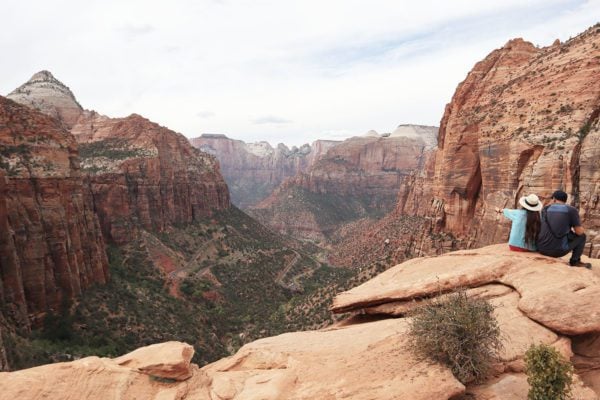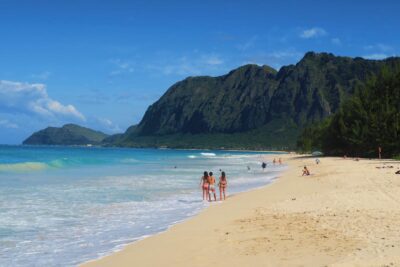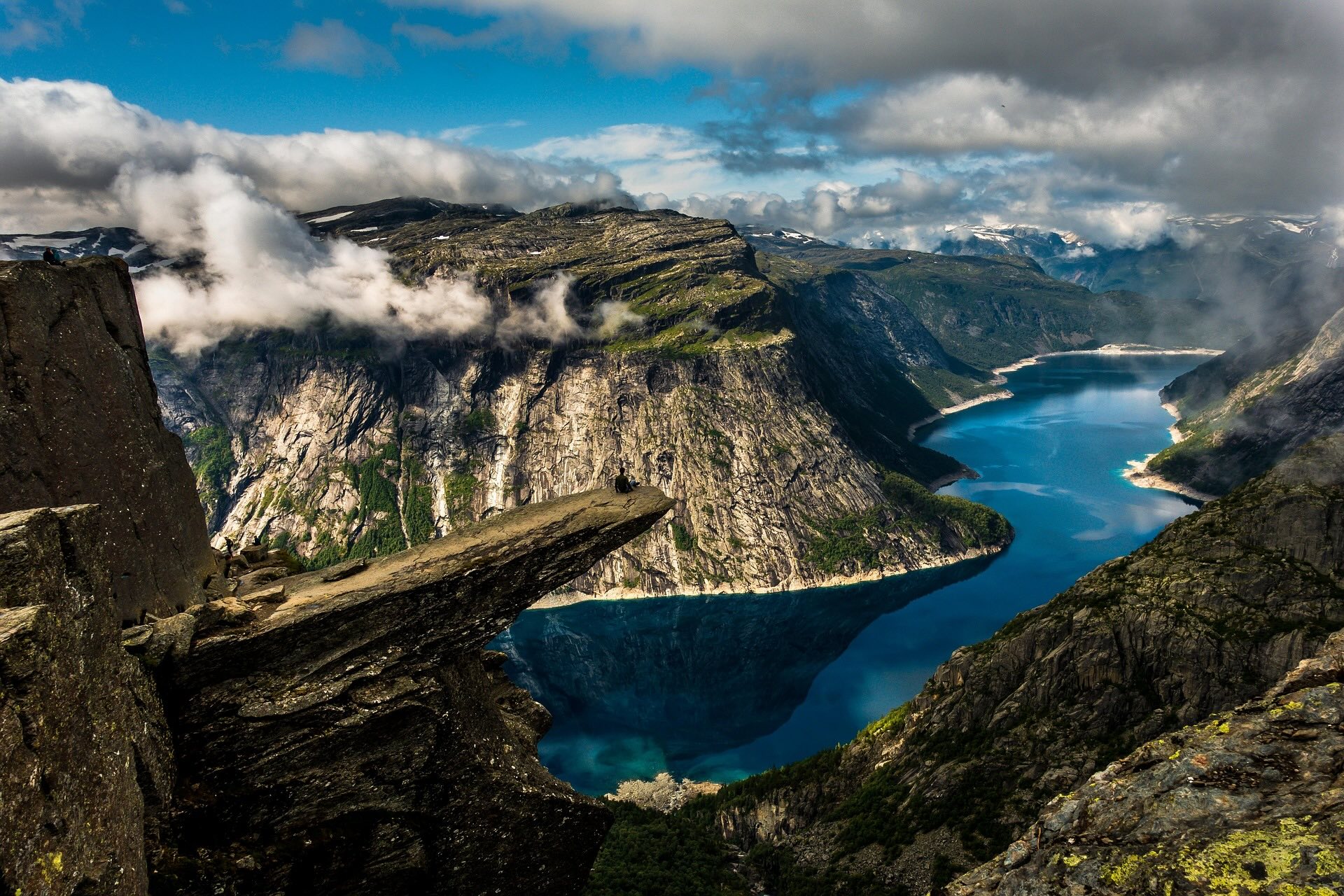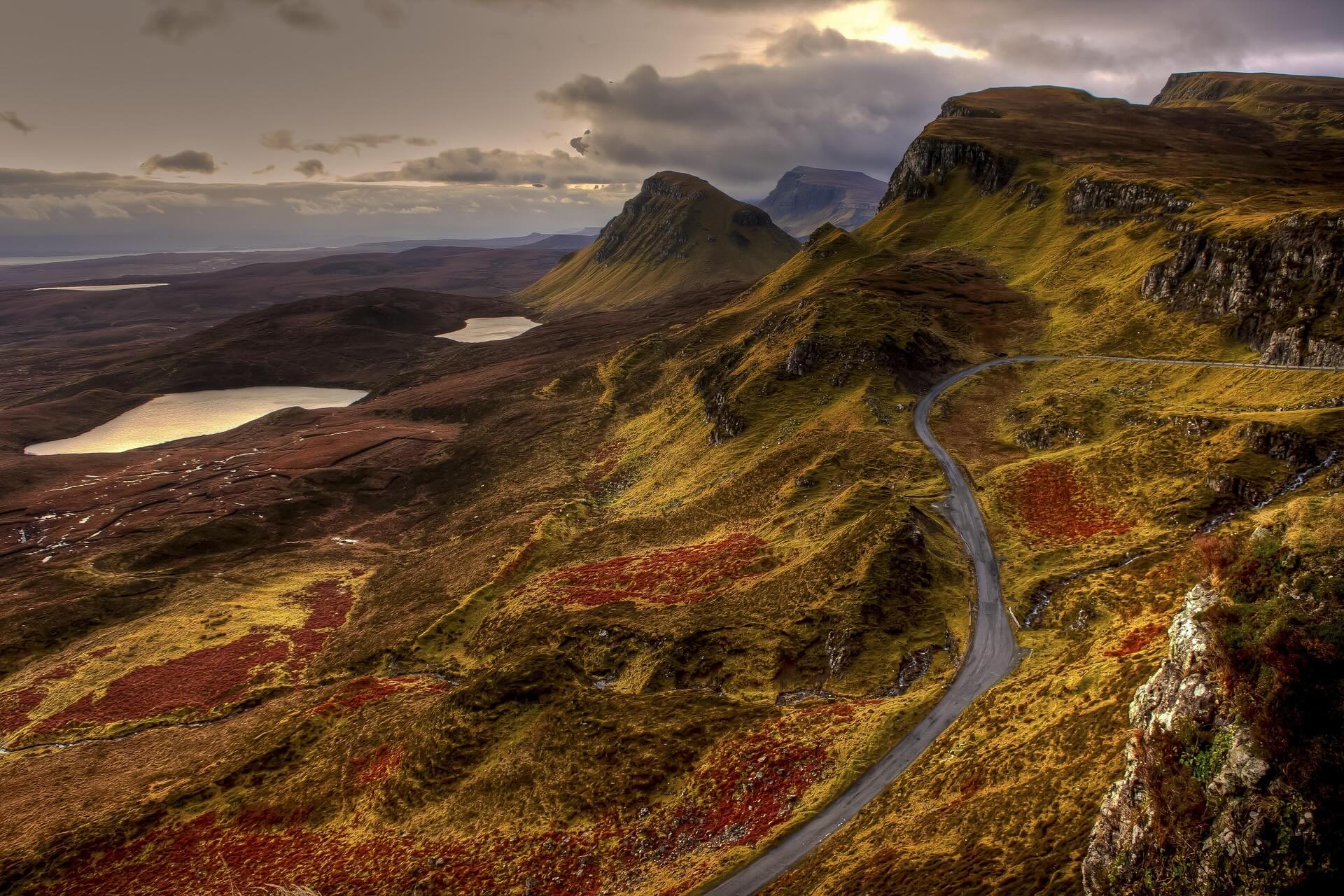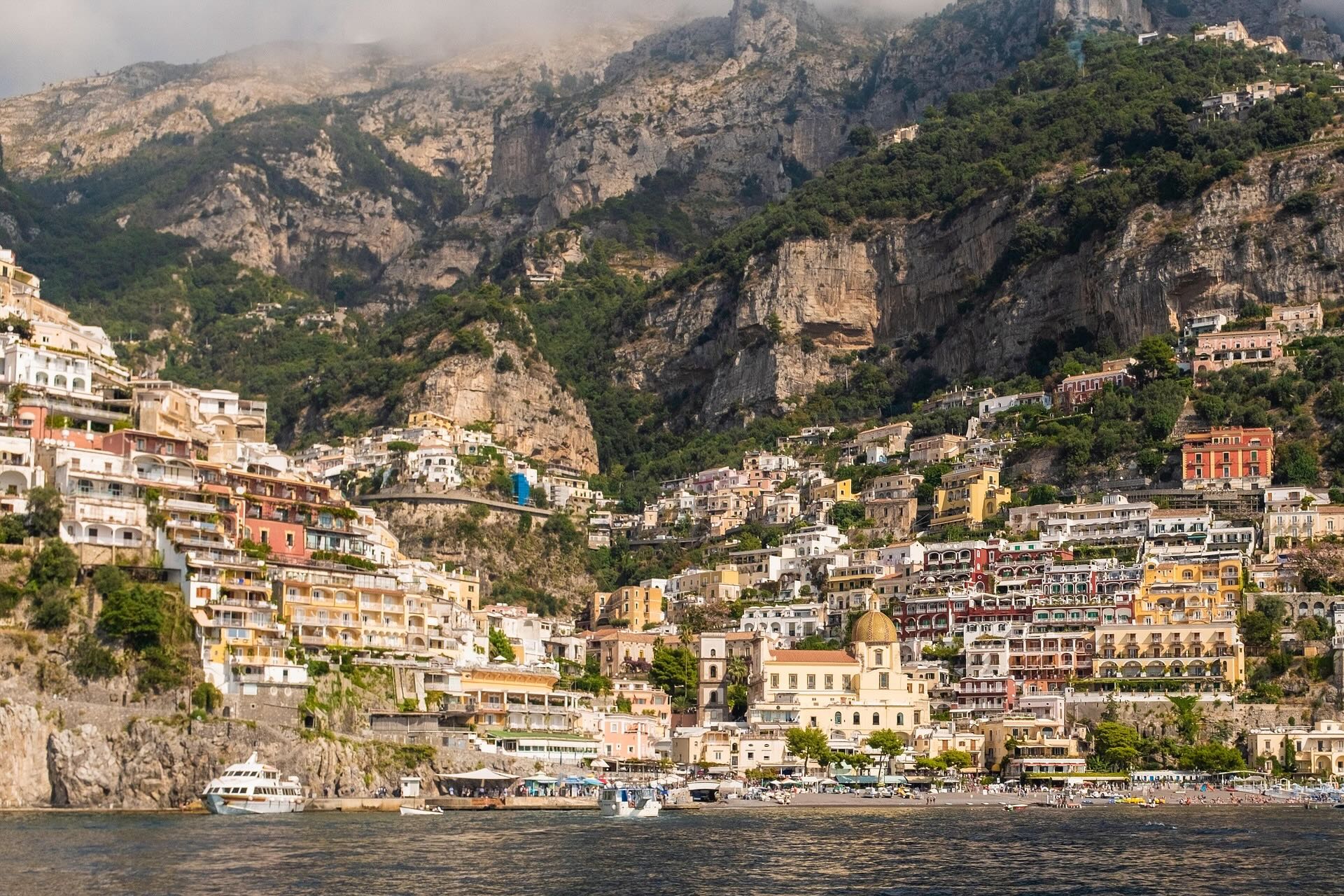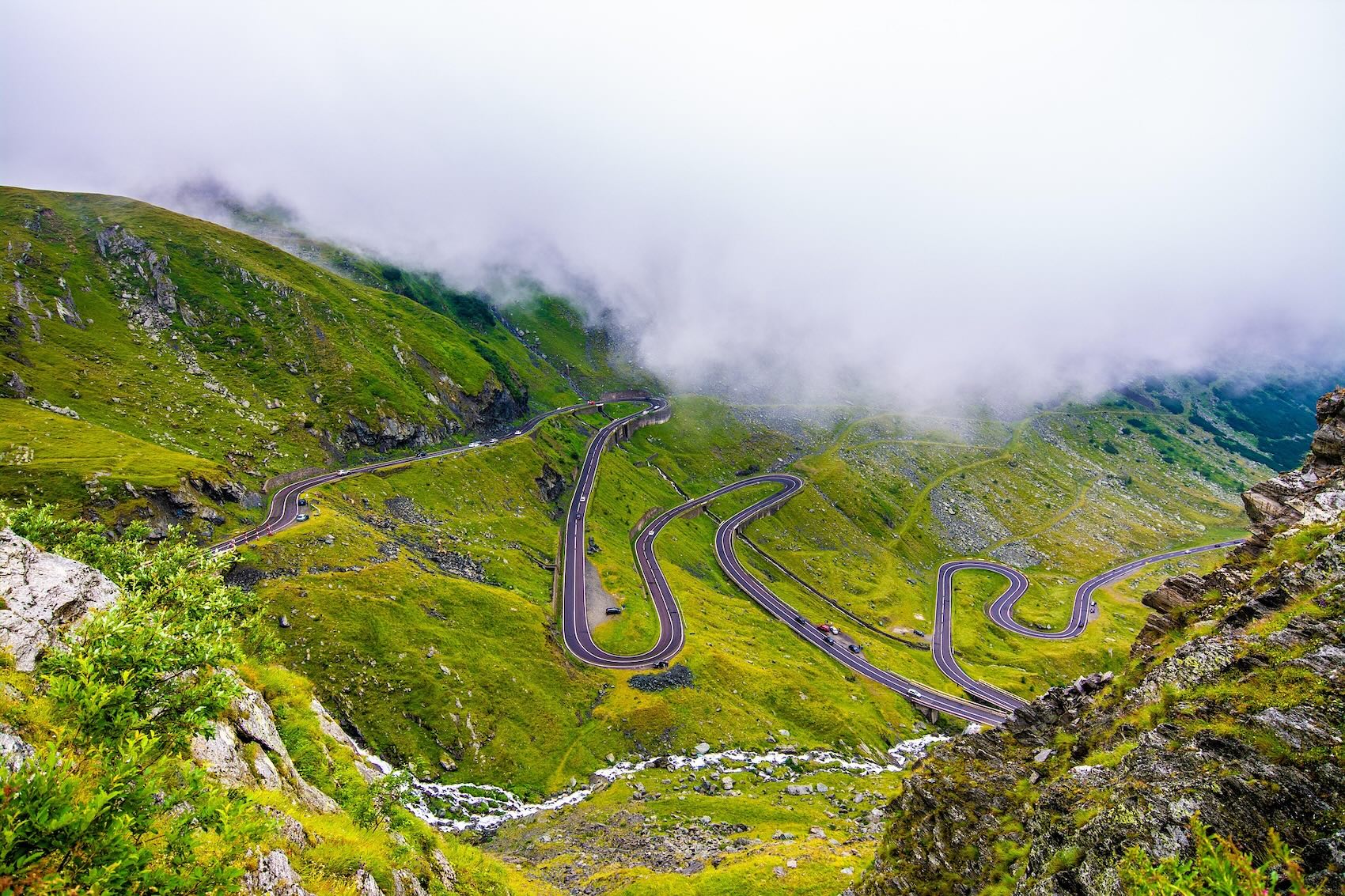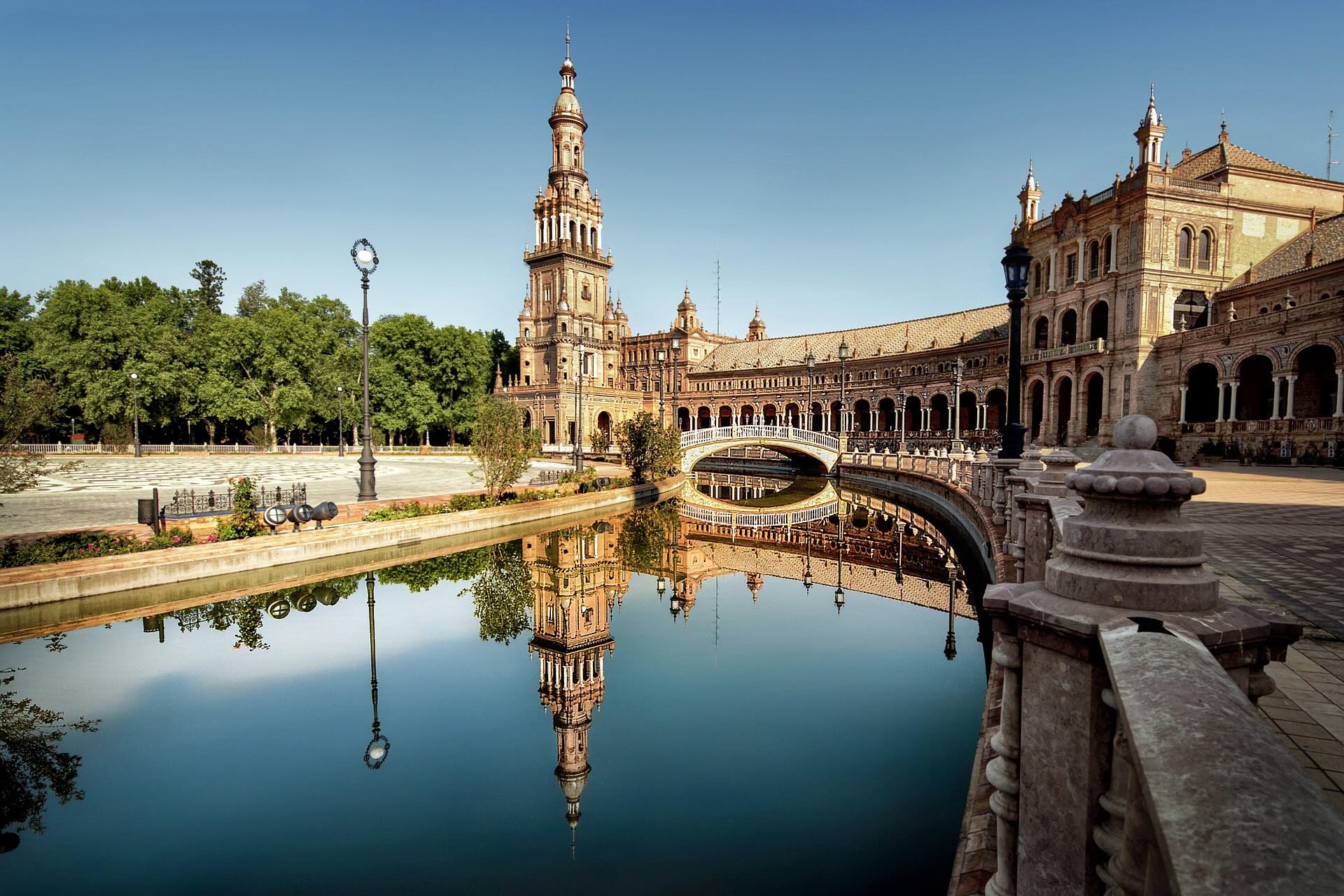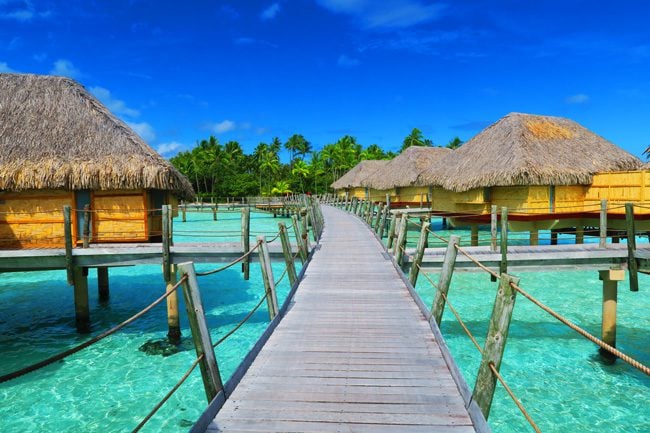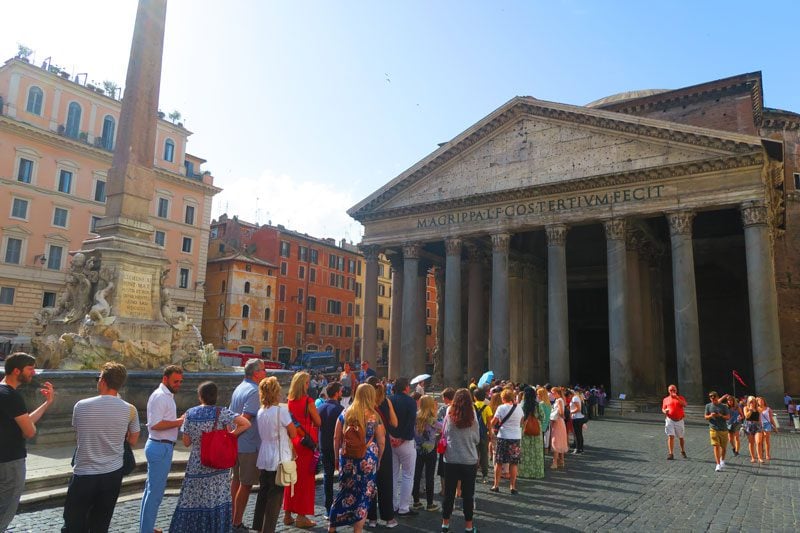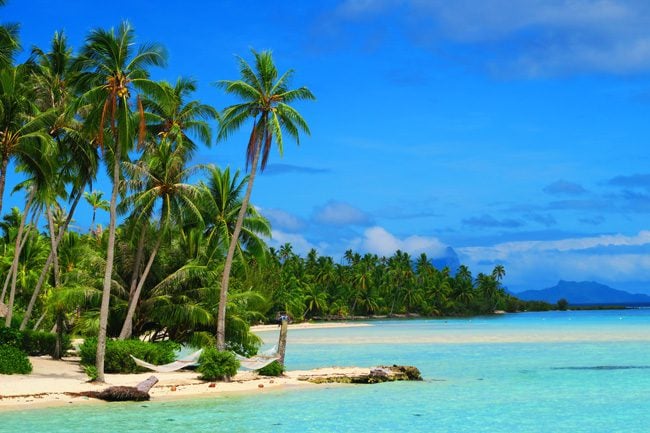5 Days In Maui itinerary
Day 3: Haleakala Crater
On day three of this Maui itinerary, we’ll spend the better part of the day in Haleakala National Park, where it feels like you’ve landed on an alien planet.
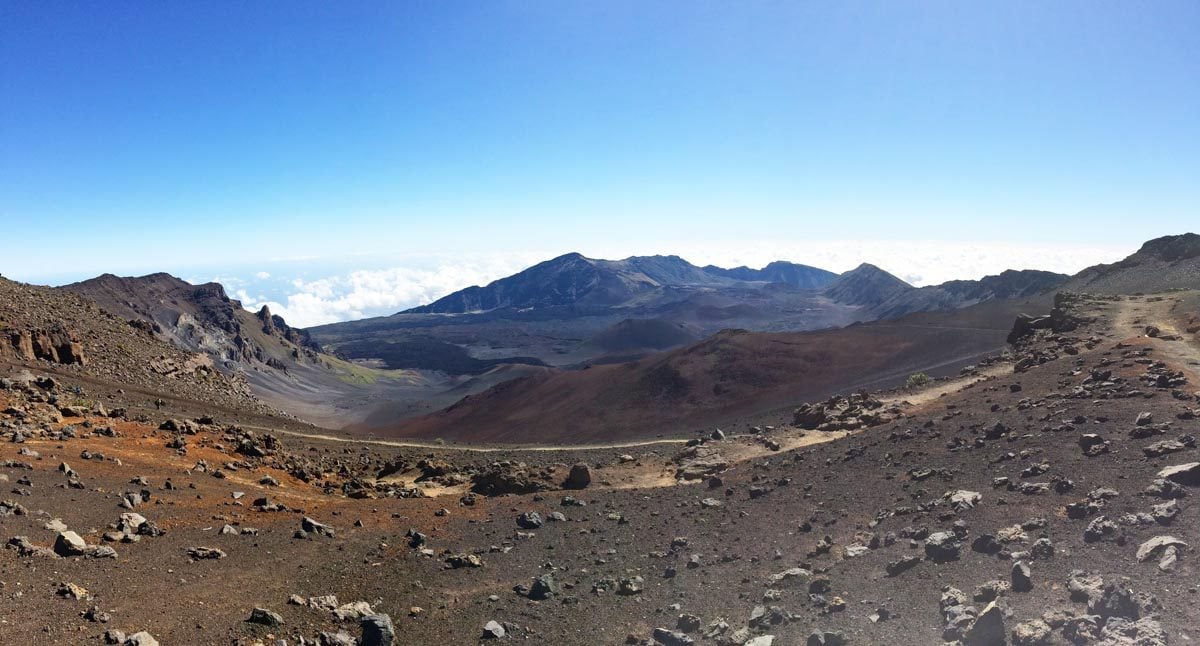
Haleakala National Park – Haleakala Crater
If you only have two or three days in Maui, do not miss the visit to the Haleakala Crater, which is part of Haleakala National Park. On such a tropical island, exploring this natural marvel is remarkable. Haleakala is the volcano that created East Maui. It is so immense that it is roughly the size of Manhattan! Known as “the world’s largest dormant volcano”, Haleakala reaches a height of 10,023 ft (3,055m) and, as we’ll soon see, it is responsible for much of the bizarre weather on Maui: the tropical north and the dessert-like south.
Today’s itinerary includes an awesome hike that will take up the bulk of the day. However, you can embark on shorter walks, hike only the first section of the hike I’ll discuss, and/or use your car to hop from one viewing area to another on the Haleakala Highway.
Watching the sunrise in Haleakala is a very trendy thing to do in Maui, as the rising sun above the cloud line exposes magnificent shades of red. Advanced reservations are a must!
Logistics for the day and travel tips
- If you’re not heading early to catch the sunrise in Haleakala, hit the road by 7:30 am to have a full day and optimal weather in Haleakala. If you’re visiting the Big Island, you can get a similar experience by watching the sunset in Mauna Kea.
- Check the weather forecast the night before to avoid the long journey in case of extreme weather.
- Remember that the weather can be unpredictable, especially at the summit. Be prepared for super cold, super warm, and super windy conditions.
- I recommend wearing several layers on this day, including long sleeves, pants, and a final layer of wind-blocking material.
- Bring food for the day, snacks, and plenty of water (min 2L per person if hiking). Pack sun protection (including sunglasses), lip balm, tissues (you’ll experience a runny nose on windy days), walking poles if they help you with inclines, and wear proper hiking shoes.
- When driving back down from the summit area, shift your vehicle into low gear to avoid unnecessary strain on your brake pads.
- Your park ticket is valid for three days and for entering the Kipahulu side of the national park (see day one itinerary), which is not accessible from the summit area except on a multi-day hike.
Driving to the Haleakala Summit
With a paved road leading to the top, reaching the summit of Haleakala is a no-brainer. The views keep improving as you gain elevation, with West Maui’s majestic peaks, the immense valley below, and the neighboring islands all appearing right beneath your feet. Be careful on this section of the drive for its sharp bends and endless flocks of morning mountain bikers speeding down as part of organized tours.
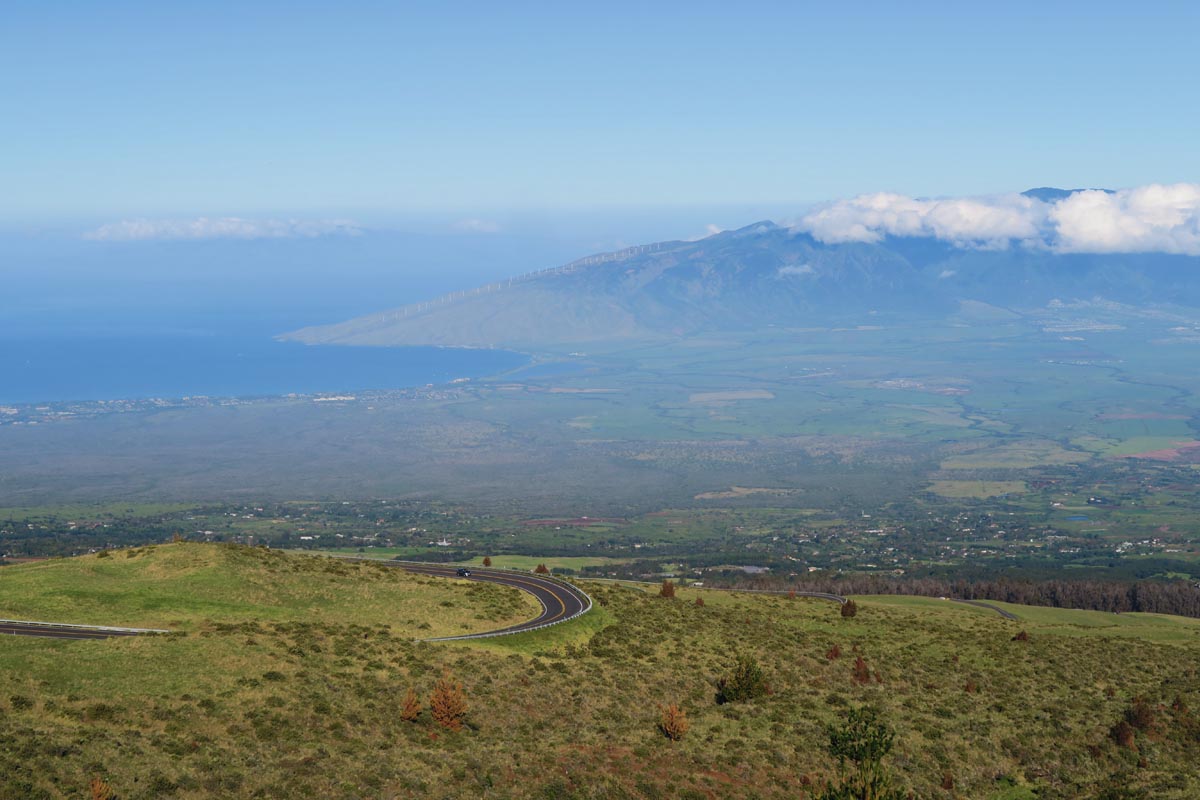
After you’ve paid the park entrance fee (or showed the receipt from your visit to the Kipahulu side of the park from day one), stop at the Park Headquarters Visitors Center before the final ascent to the summit and inquire about weather conditions and various hiking trails suitable for all fitness conditions and time constraints.
If you plan to extensively hike in Haleakala, I recommend leaving the viewing areas (apart from the summit) for the drive down since the views on the hike will trump those from the lookouts.
Haleakala Summit
When you make it to the summit of Haleakala, you will no doubt comprehend the meaning of its name in native Hawaiian – “the land above the clouds”. At 10,023 ft (3,055m), the highest point on Maui is a prime location for scientific and space observatories. It is also a very (very) windy place.
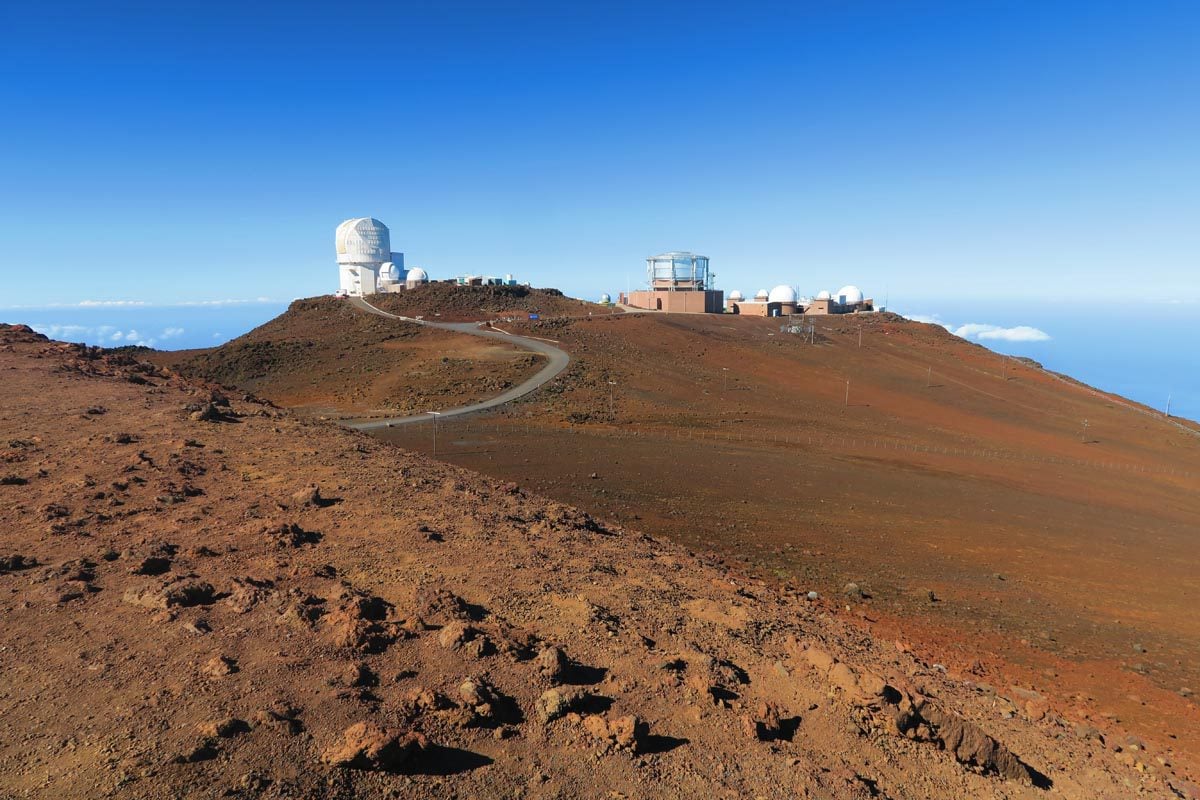
Park your car, walk around the summit, or quickly run into the protected viewing area if it’s a windy day. The view from the summit is spectacular. From here, you can witness how Haleakala creates weather in real time. You see, Haleakala is so massive that moisture carried by the trade winds rarely travels beyond its steep slopes. It gets trapped, condenses, and rains down on the Hana coast, leaving this part of the island bone dry.
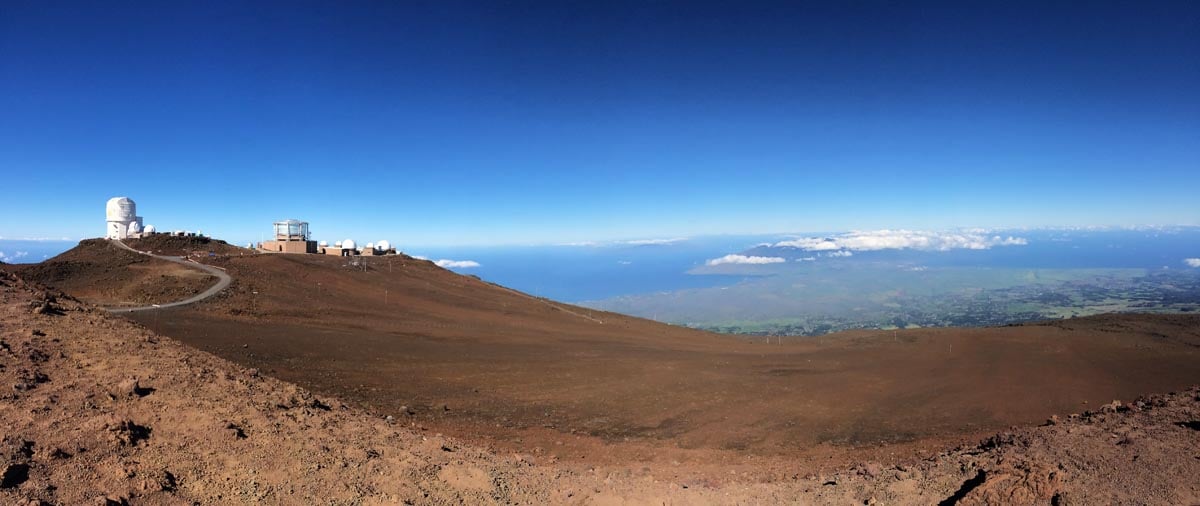
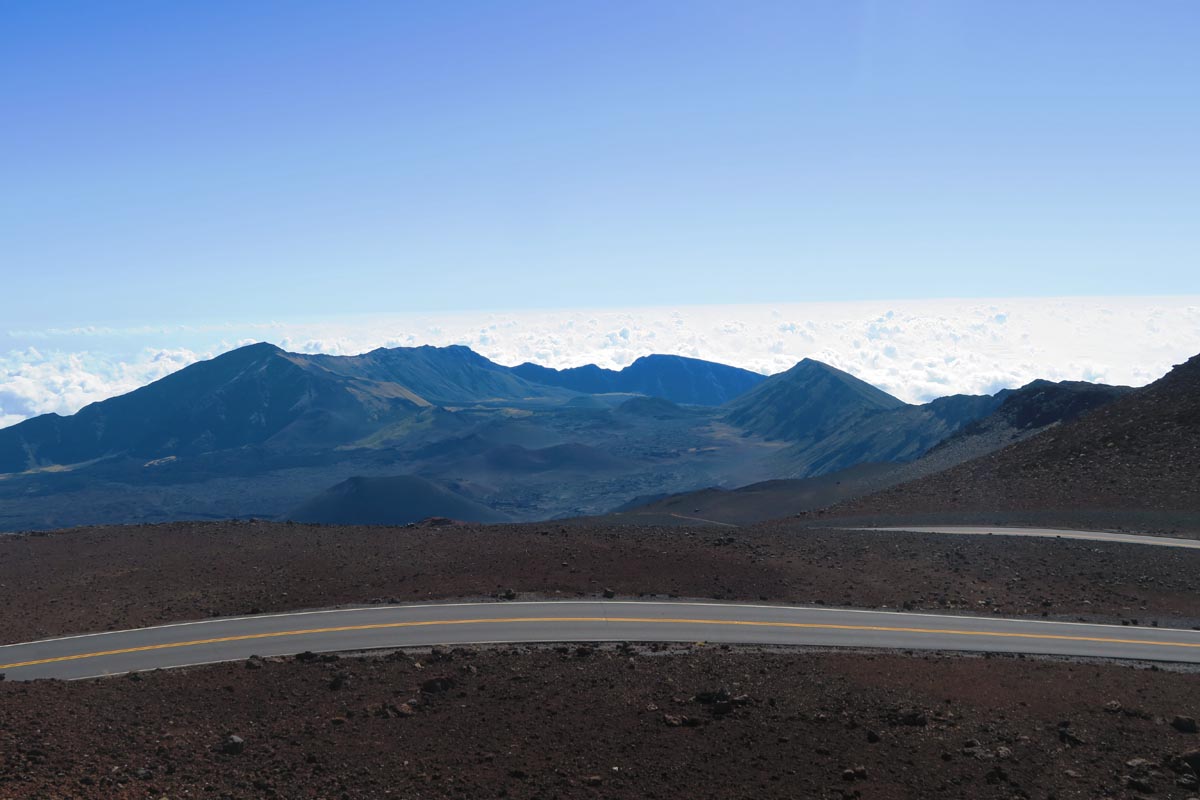
Sliding Sands Hike
Unlike the hike to the summit of Mauna Kea on the Big Island, in Haleakala, you hike down to the main attraction, and there’s no better way to fully experience the Haleakala Crater than on the Sliding Sands Trail. Completing the challenging hike requires camping in one of the cabins along the way (with advanced reservations). However, you can hike part of the trail to get a feel for the crater floor.
Descending to the crater floor
Pick up the trailhead from the visitors center parking lot and descend towards the crater floor via several switchbacks. The views are surreal: endless shades of red, cinder cones galore, and clouds hanging over the scenic Hana coast.
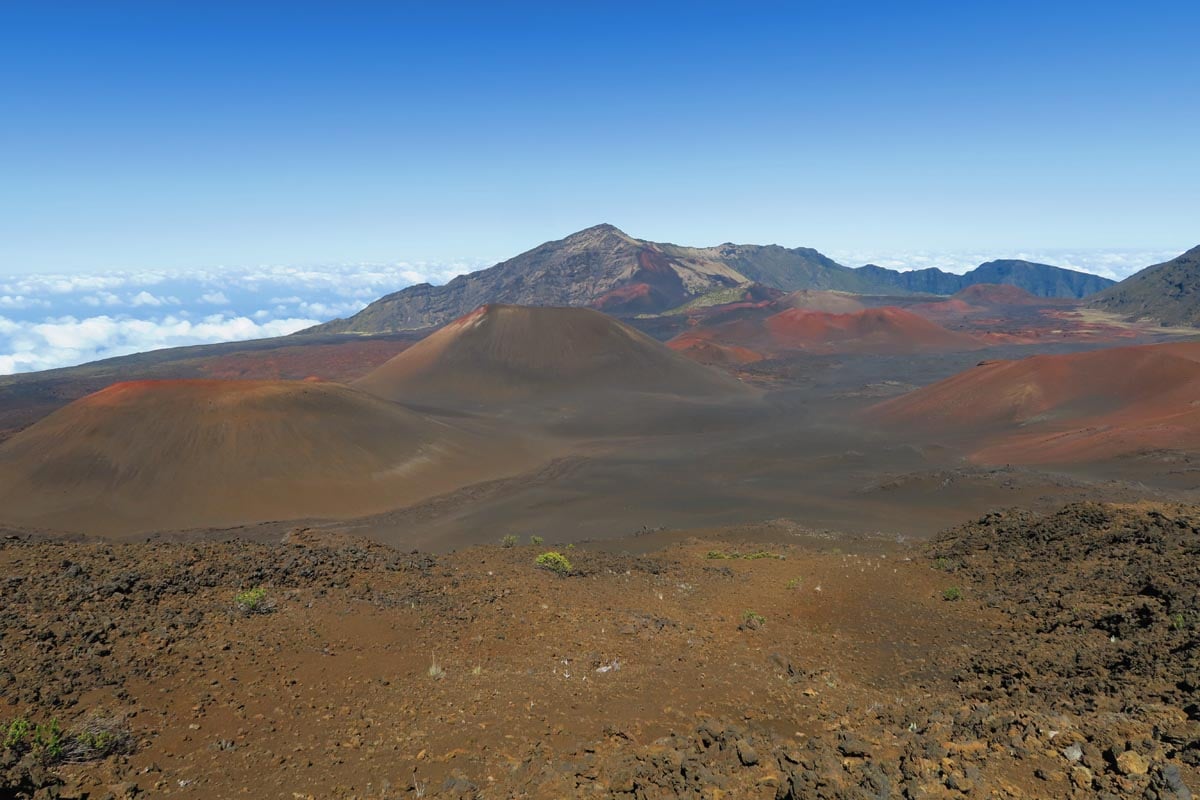
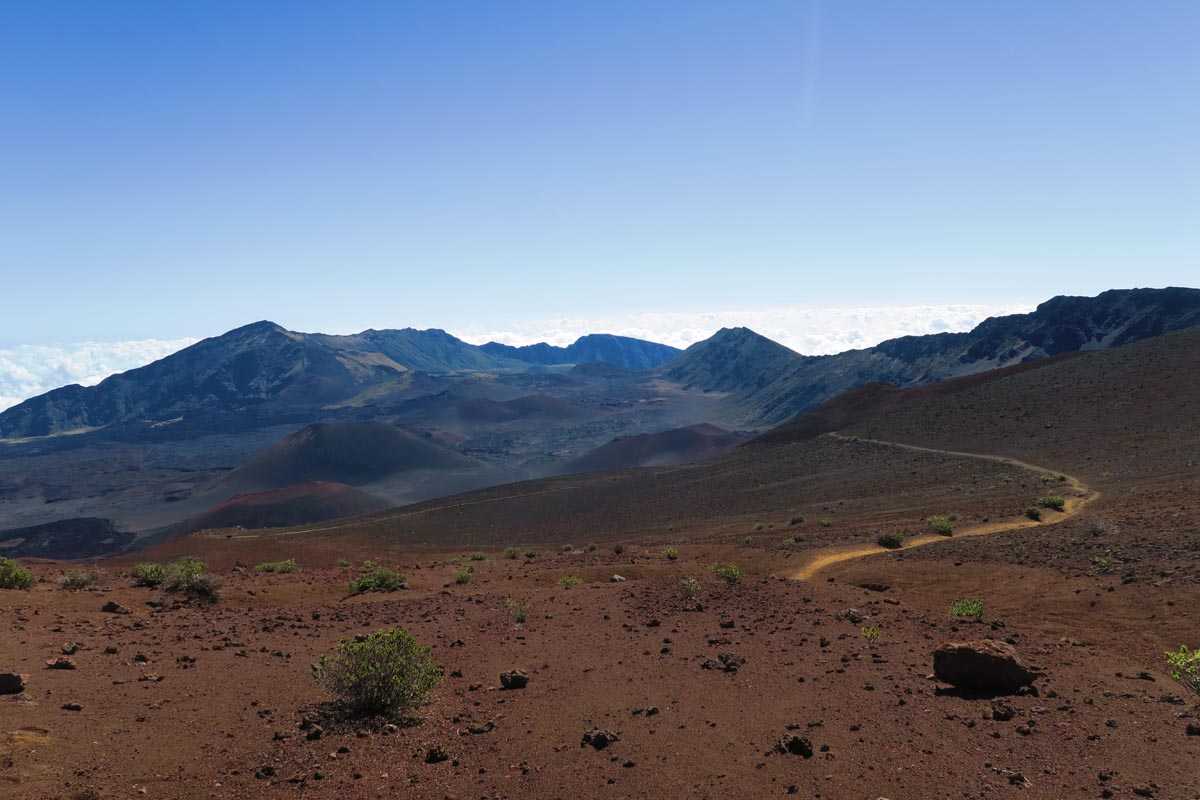
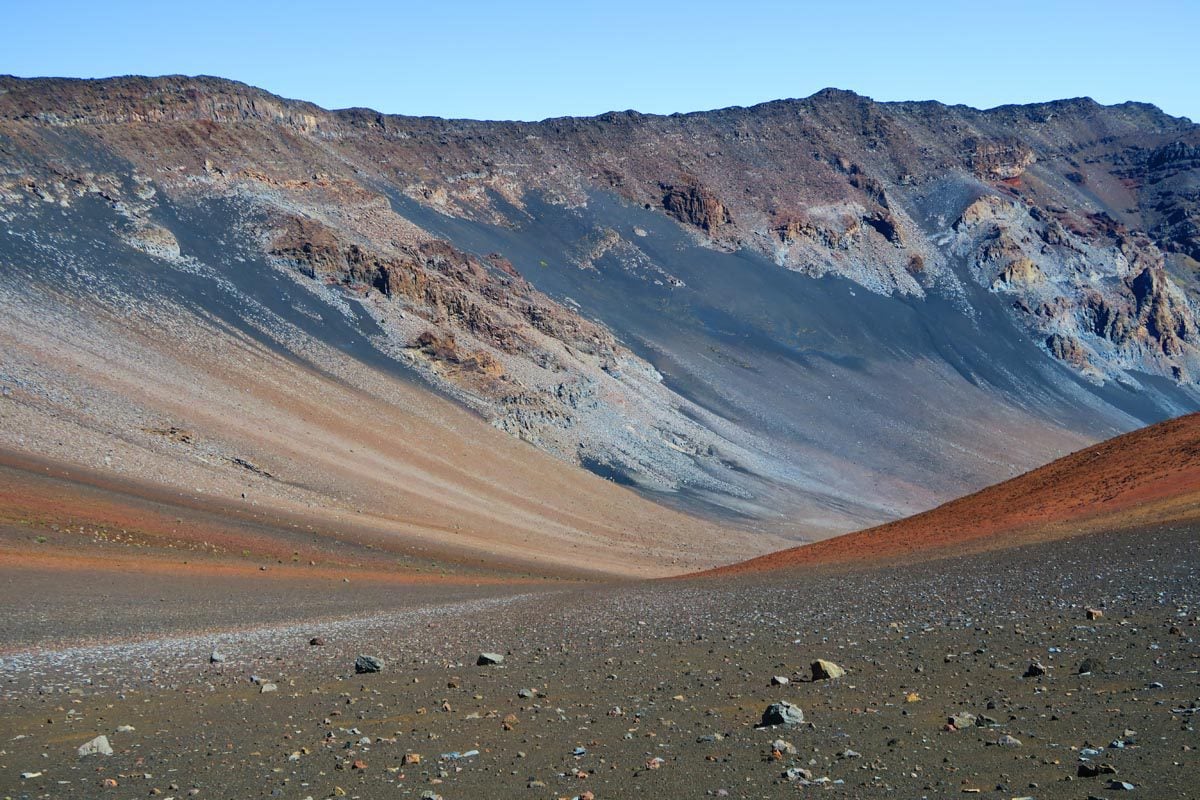
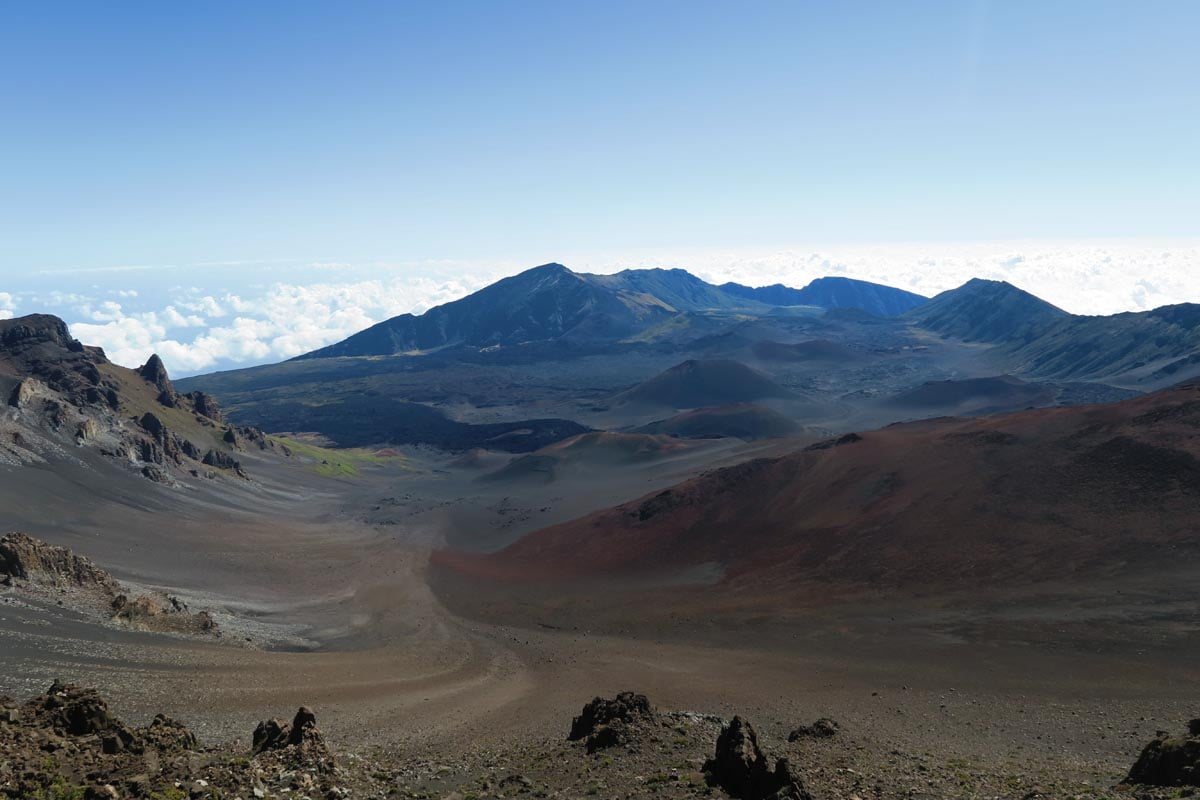
The Split Rock
In less than one hour, you’ll reach “the split rock”. If you don’t want to commit to a longer hike, you can enjoy the views from here and admire the crater’s unique flora before returning.
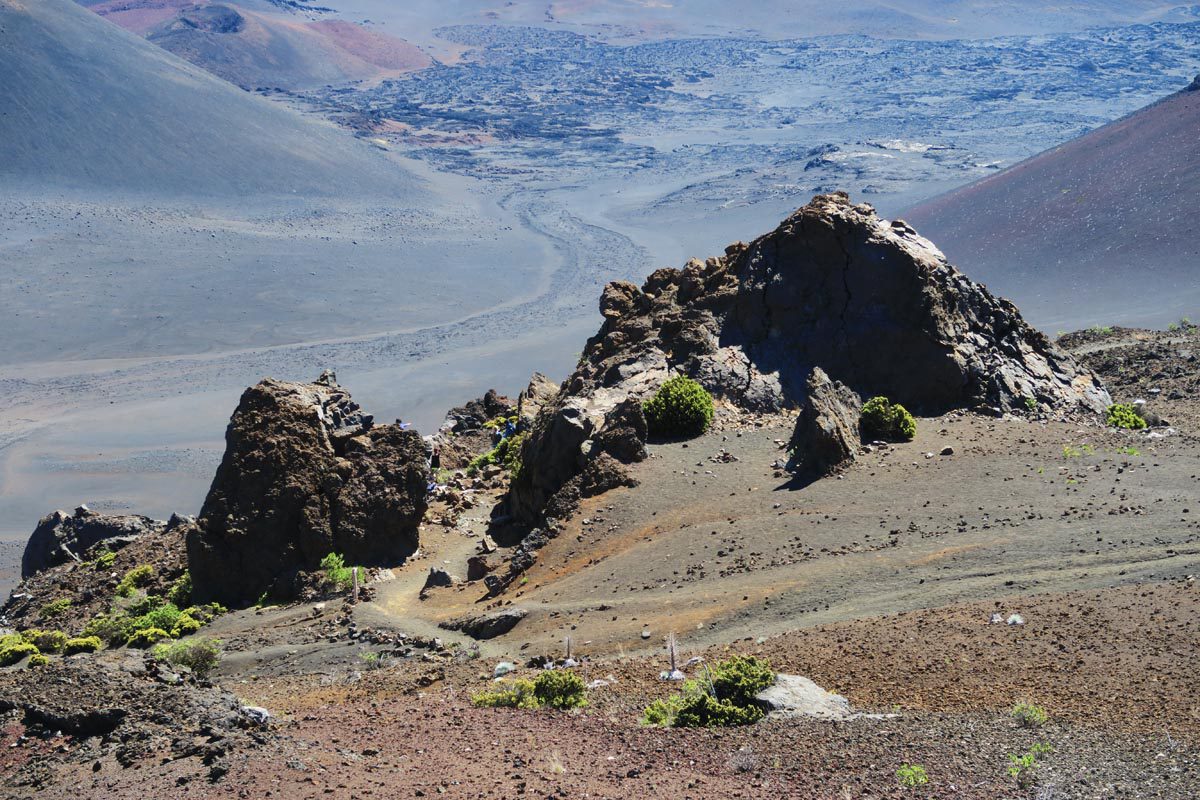
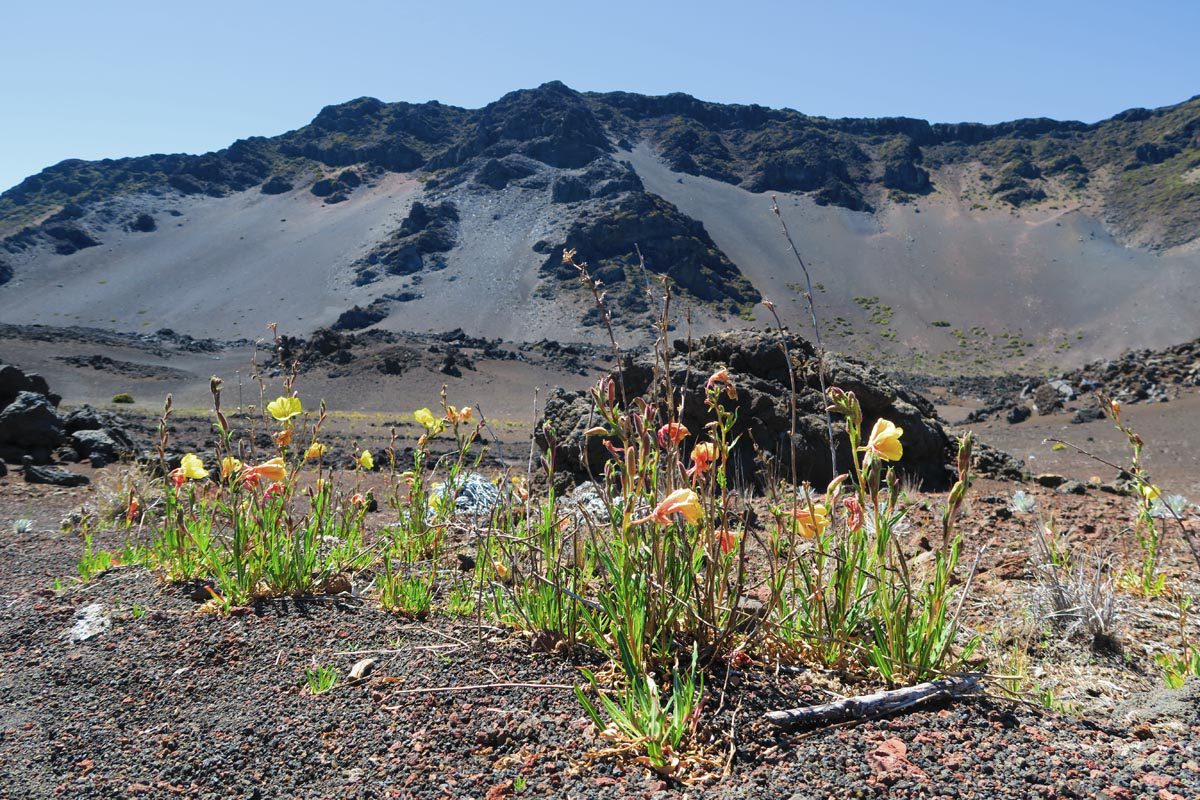
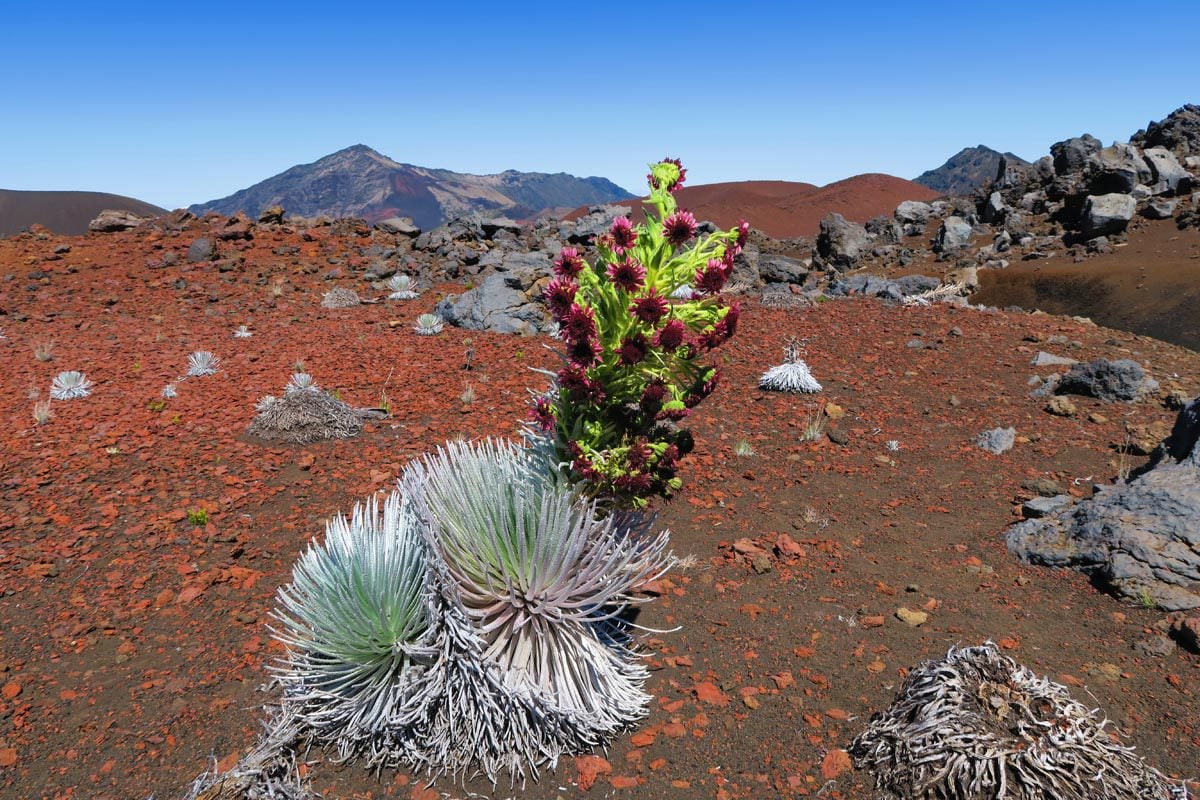
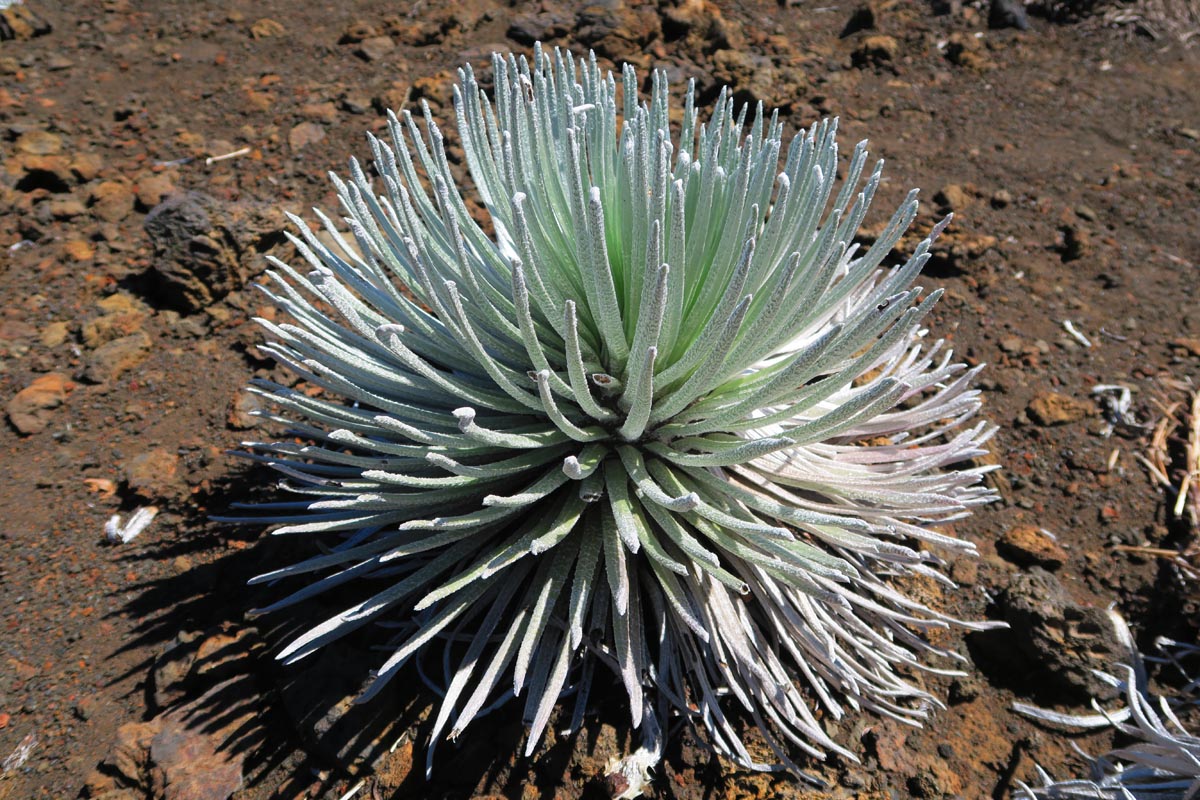
Haleakala Crater Floor
After 3.9 miles (6.3 km), you’ll reach the crater’s floor and a fork in the trail. You can take a left onto the Halemau’u Trail and reach the main road within a less challenging 7.3 miles (11.7 km) climb, after which you’ll need to hitch a ride back to the parking lot (if you didn’t plan this ahead of time with two cars). You can continue along the Sliding Sands Trail as I did and turn around once you reach the Kapalaoa Cabin.
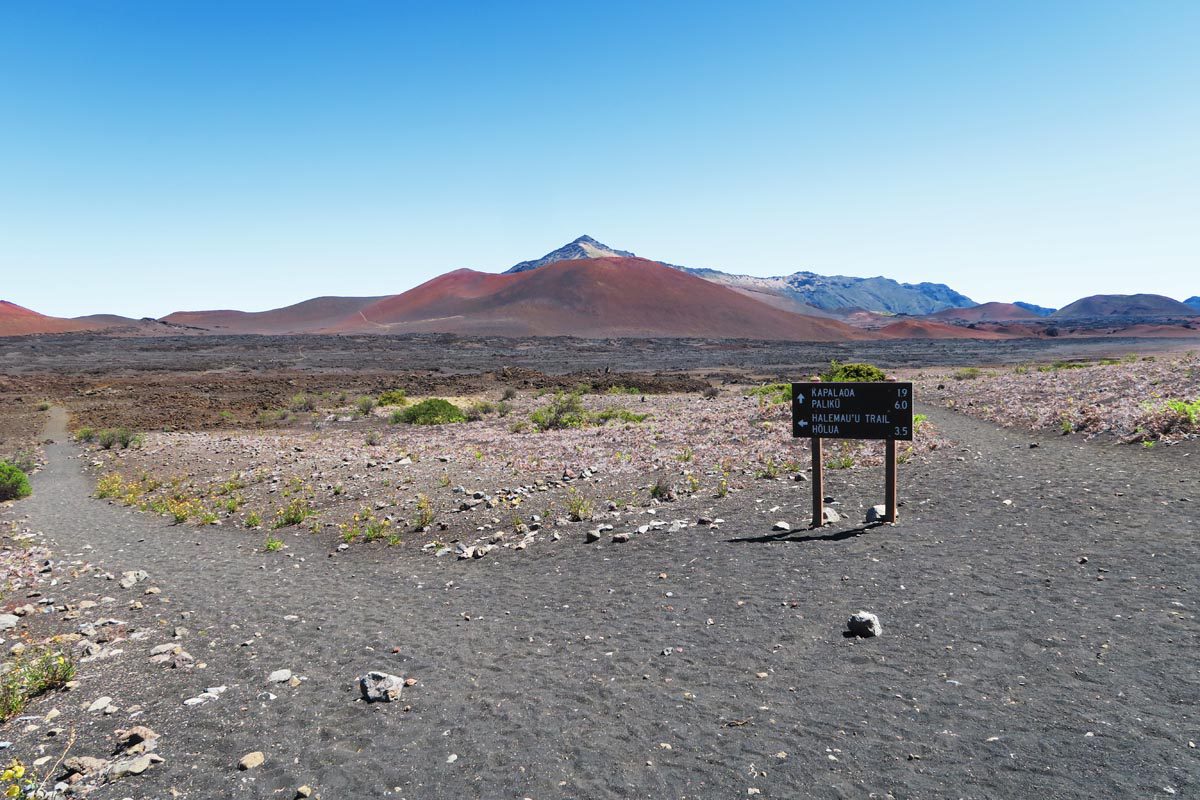
The advantages of venturing deep into the crater floor include a unique vantage point towards the trailhead section of the crater and a closer inspection of the bizarre cinder cones and their Martian-like soil. I thought I would bump into the Mars Curiosity Rover at any point.
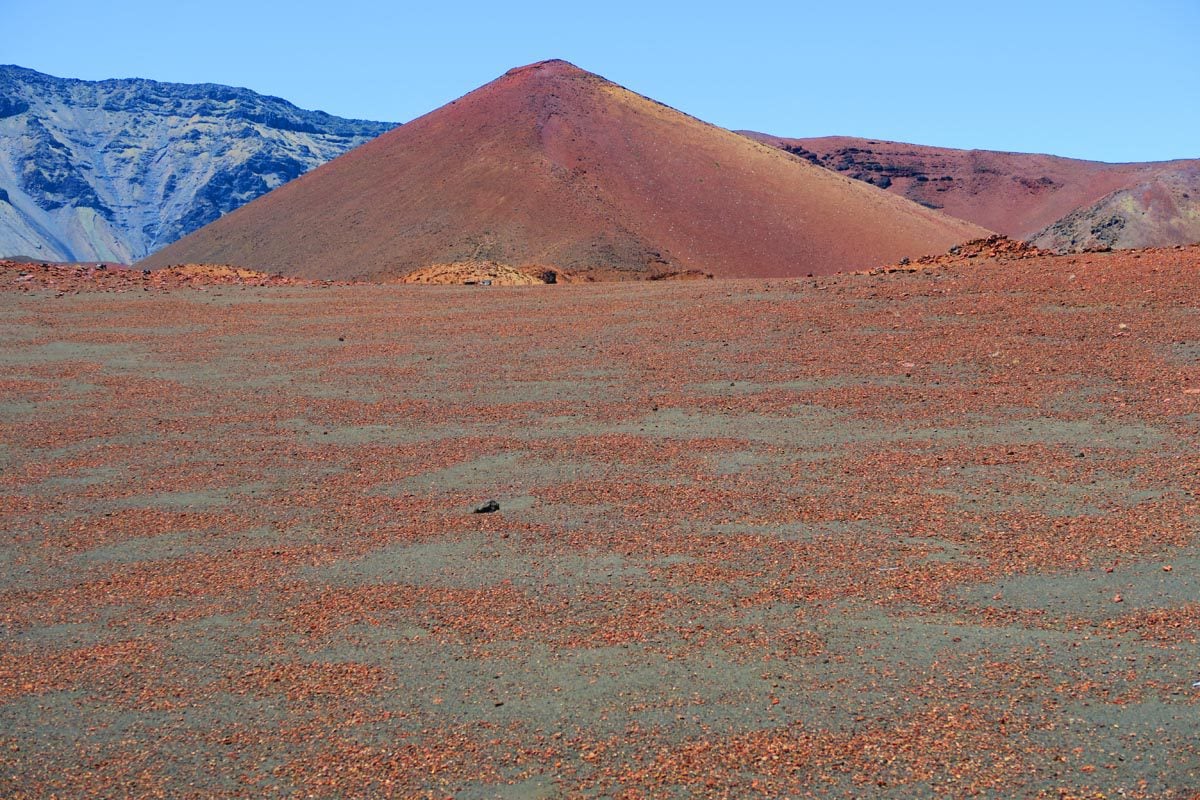
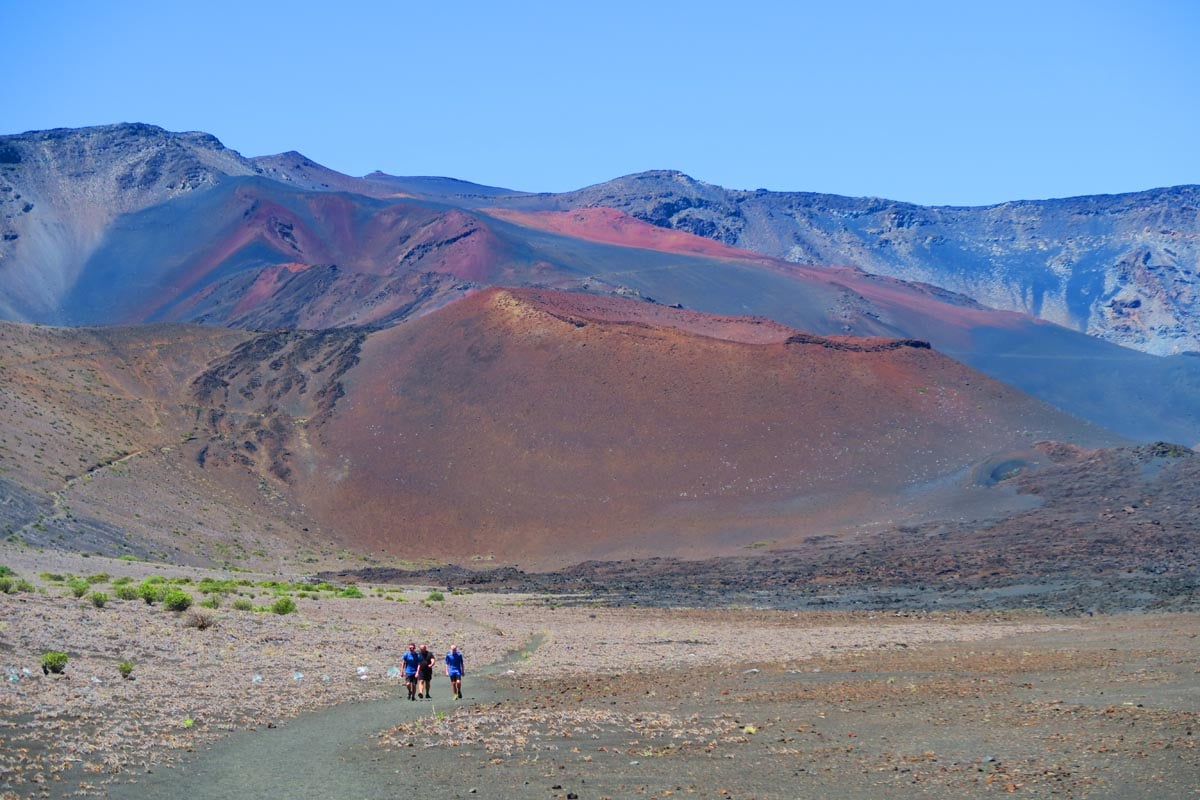
It took me a total of 5.5 hours to make it back, including many stops, but I must admit that climbing back up was challenging and slow-going due to fatigue, dryness, wind, and high altitude.
Kalahaku & Leleiwi Overlooks
These are the best side-of-the-road overlooks in Haleakala. Kalahaku offers the best view of the crater apart from the Sliding Sands hike, with glowing red colors on a sunny afternoon. Leleiwi, on the other hand, offers impressive views of East Maui and its coast.
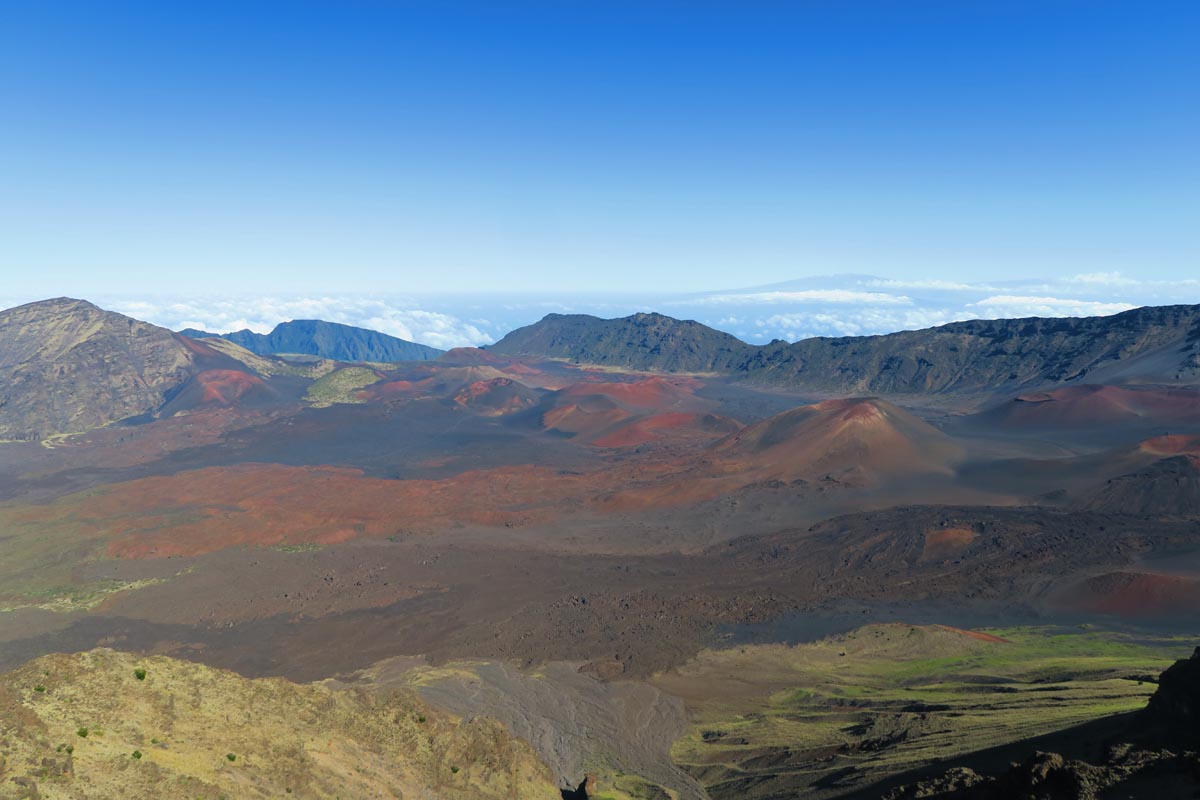
Ho’okipa Beach Park
After the dusty red of Haleakala, it’s time to return to the blue of the Pacific. Before returning to your accommodation, stop at Ho’okipa Beach Park and its scenic overlook. From the overlook, enjoy sweeping coastline views and the daring surfers who ride the waves. This is one of the top surfing beaches in Hawaii!
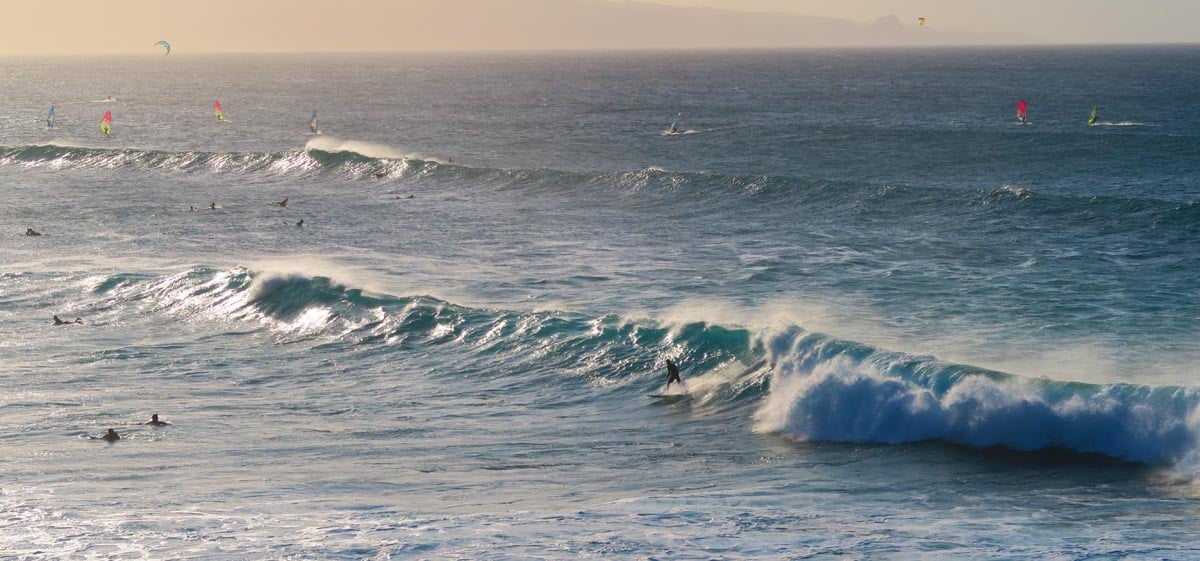
But that’s not all. Head down from the overlook to the beach or just follow the crowd. In a specific beach area, dozens of green sea turtles are huddled together as they “work on their tan”.
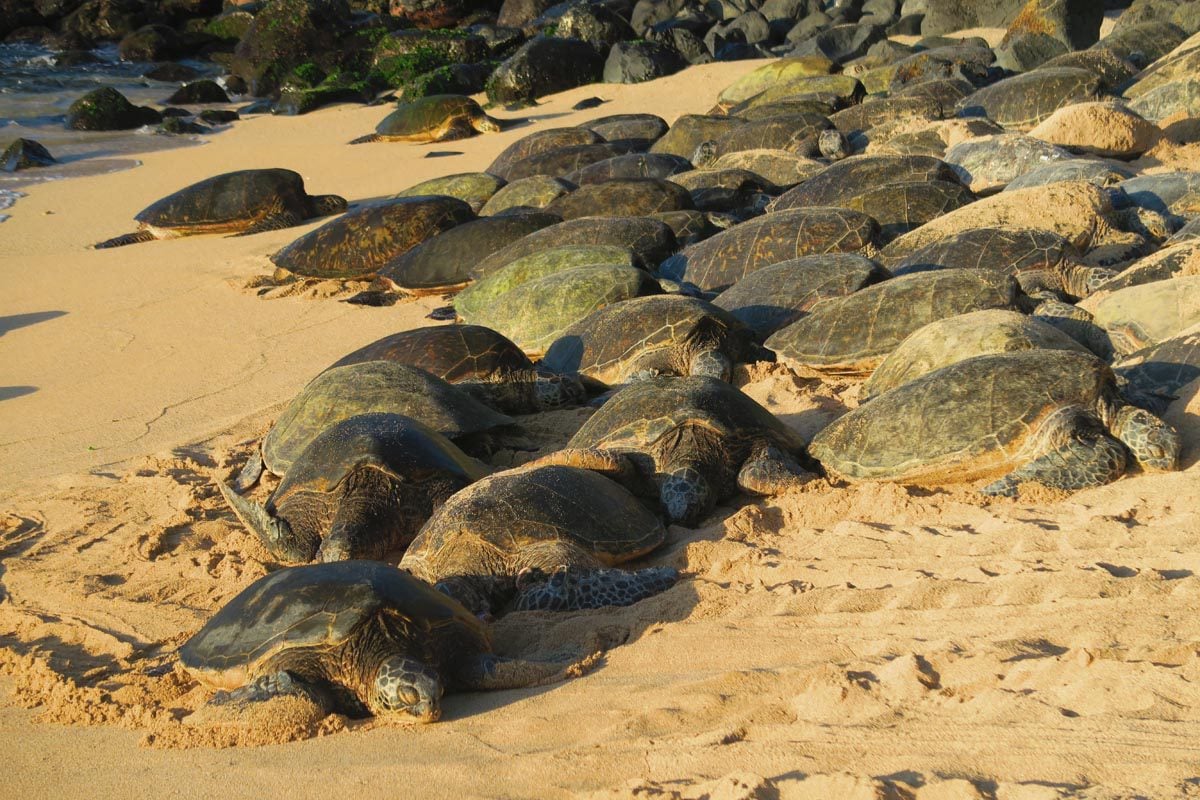
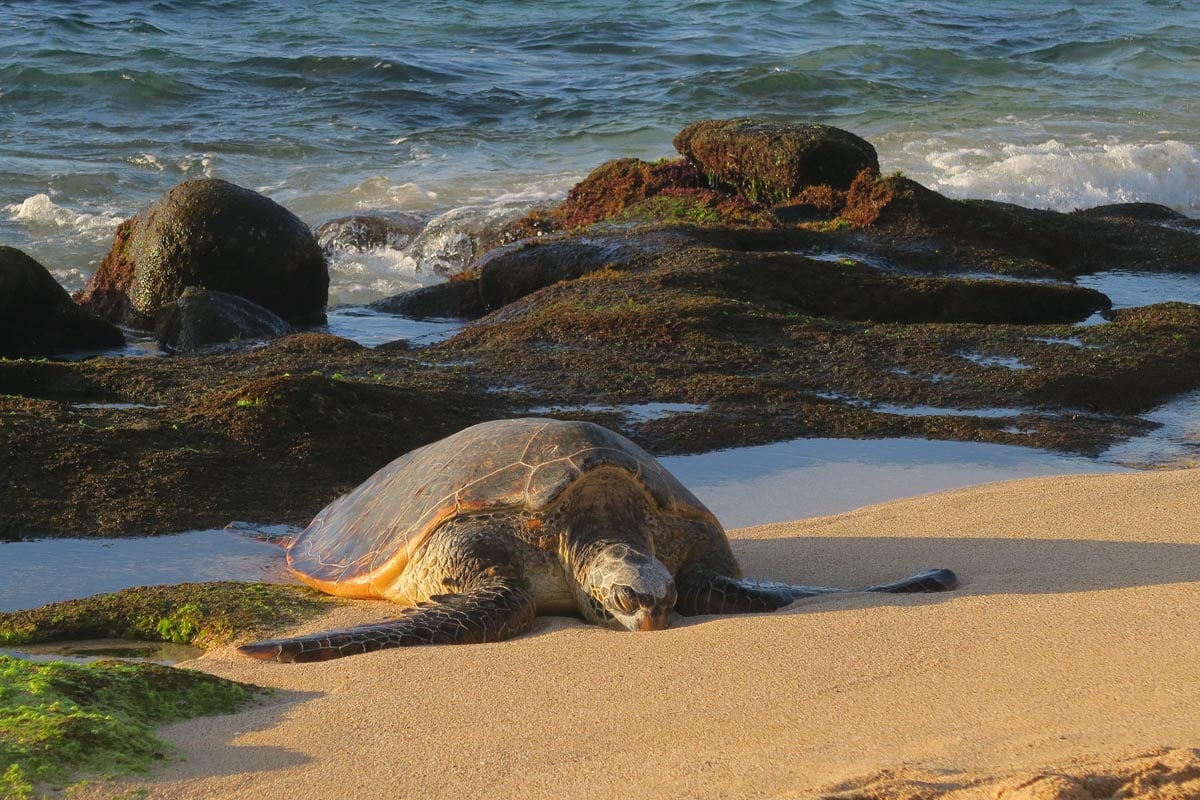
Another solid option is not too far away at Kanaha Beach Park. This is a kitesurfing beach, but even if you’re not hitting the water, you’ll be treated to awesome views of the sun’s rays piercing through the cracks of the Iao Valley and the beautiful Maui locals who like to hang out here.
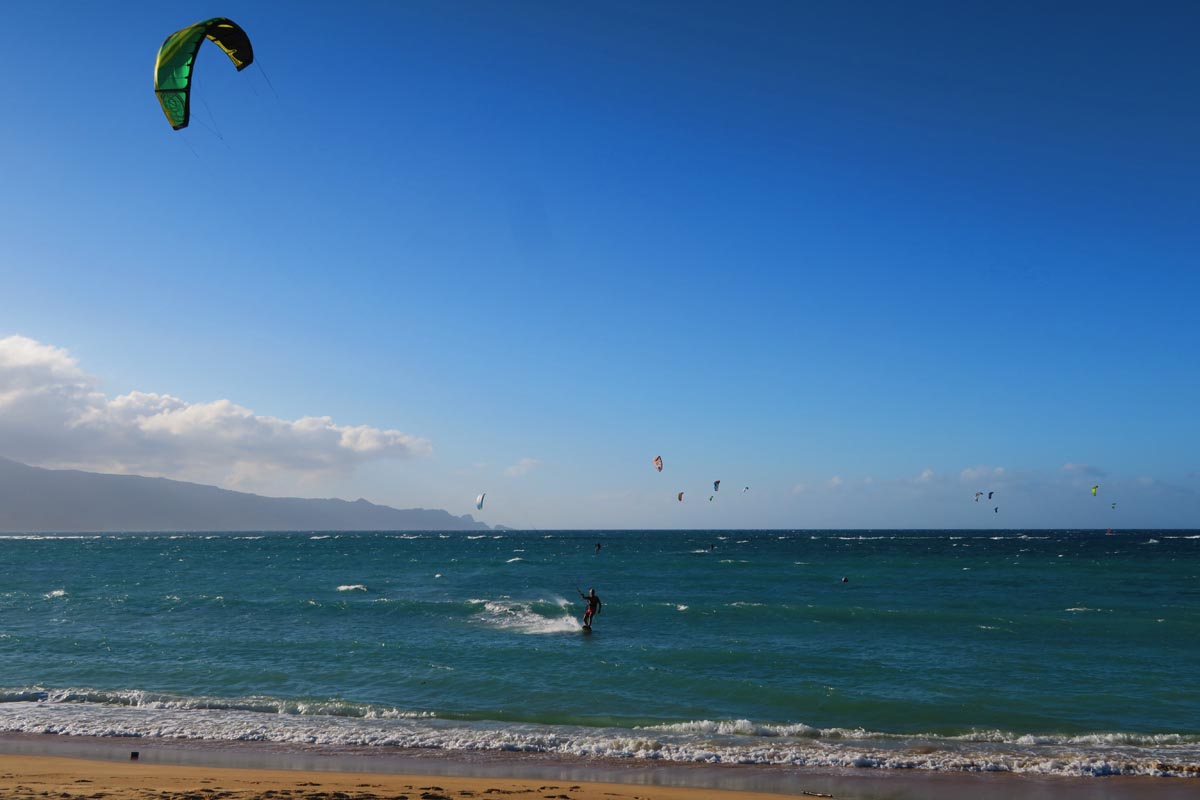
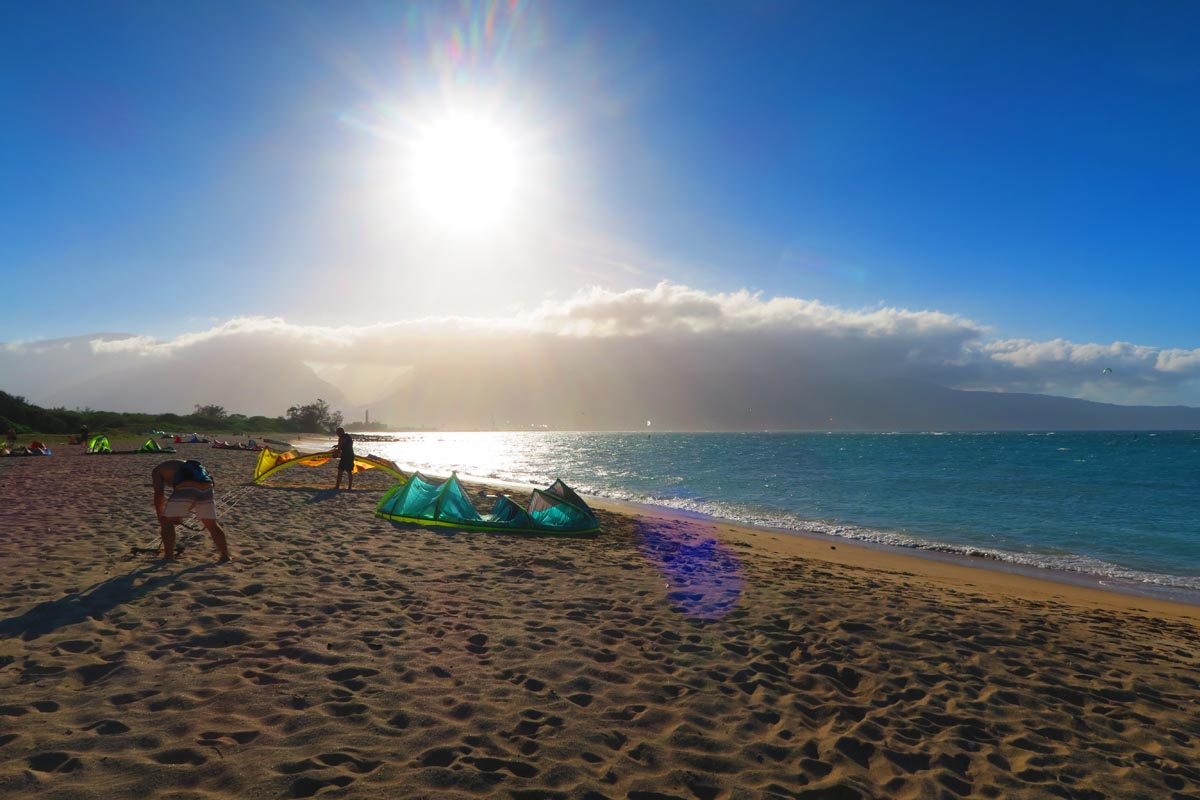
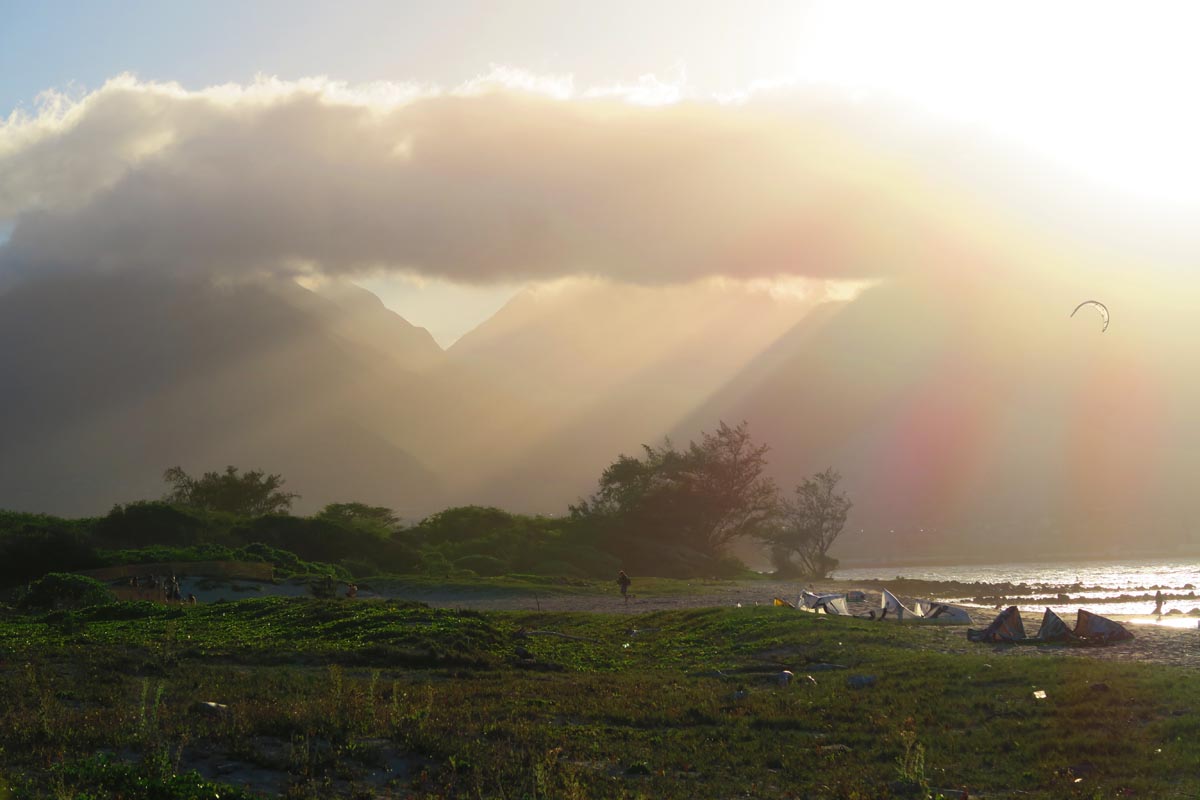
Dinner in Paia
If you feel like grabbing dinner nearby, head to Paia Fish Market before calling it a day (see day one itinerary).
